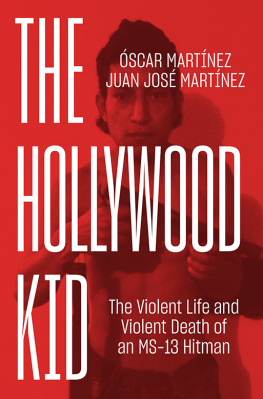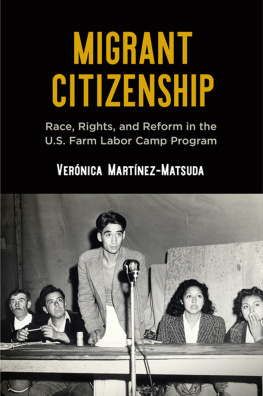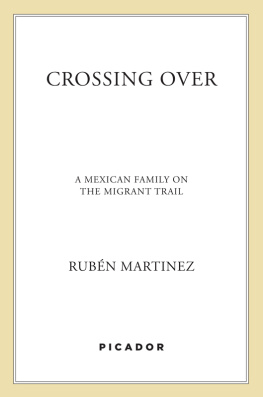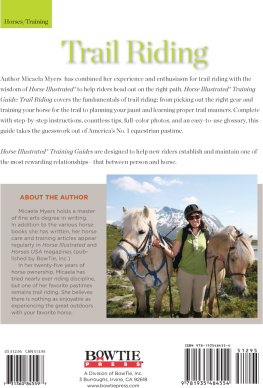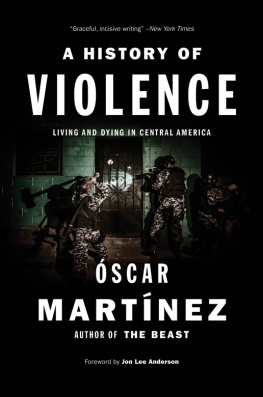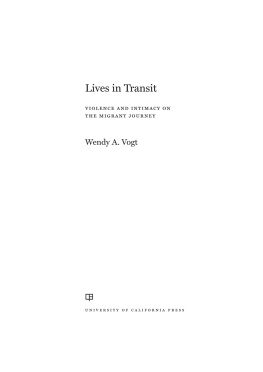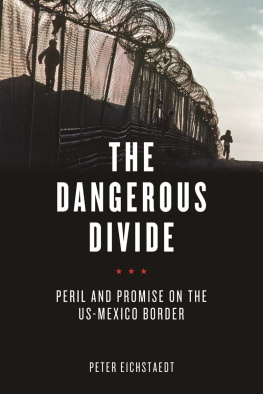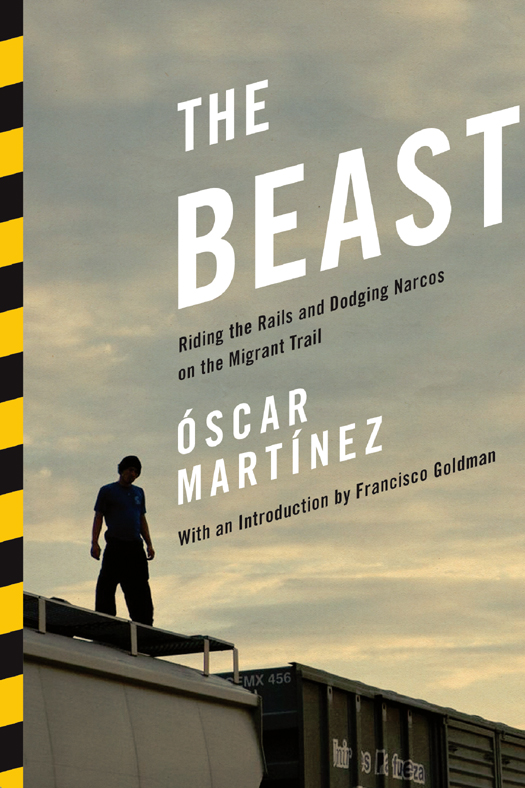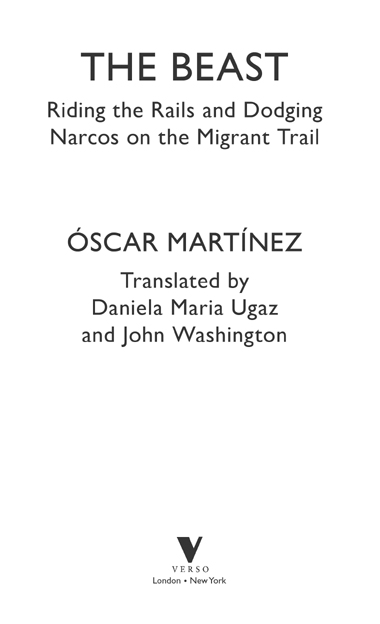This English-language edition first published by Verso 2013
Translation Daniela Maria Ugaz and John Washington 2013
First published as Los migrantes que no importan
Icaria Editorial 2010
Foreword Francisco Goldman 2013
All rights reserved
The moral rights of the authors have been asserted
Verso
UK: 6 Meard Street, London W1F 0EG
US: 20 Jay Street, Suite 1010, Brooklyn, NY 11201
www.versobooks.com
Verso is the imprint of New Left Books
ISBN-13: 978-1-78168-132-9
eISBN (US): 978-1-78168-190-9
eISBN (UK): 978-1-78168-502-0
British Library Cataloguing in Publication Data
A catalogue record for this book is available from the British Library
Library of Congress Cataloging-in-Publication Data
Martnez, scar (Oscar Enrique)
[Migrantes que no importan. English]
The beast : riding the rails and dodging narcos on the
migrant trail / by scar Martnez; translated by
Daniela Maria Ugaz and John Washington.
pages cm
First published as Los migrantes que no importan
[copyrighted] Icaria Editorial 2010.
ISBN 978-1-78168-132-9 (hardback : alk. paper)
1. Illegal aliensMexico. 2. Central Americans
Mexico. 3. ImmigrantsMexico. 4. Mexico
Emigration and immigrationSocial aspects.
5. Central AmericaEmigration and immigration
Social aspects. I. Title.
JV7402.M3713 2013
305.9>069120972dc23
2013020580
v3.1
Contents
Foreword
By Francisco Goldman
ElFaro.net advertises itself as Latin Americas first online digital newspaper. It is based in El Salvador, and was founded in 1998. Many enterprises nowadays, individual and collective, proclaim themselves or would like to be considered alternative, and as part of a vanguard showing the way forward, but ElFaro.net truly is both. It certainly offers an alternative to the kinds of fare provided by El Salvadors familiar newspaperscomplicit with the political and moneyed establishment, and thoroughly mediocre at best, as is true of the establishment press and other media throughout Latin America. And ElFaro.net is a vanguard because it is so very excellent in every way that it has become a beacon of the possible, of the ambitious, of the truly revolutionary, to young journalists up and down the continent. To the question of how it can be that the Bloomsbury of Latin American journalists has sprung up in tiny El Salvador and not in Mexico City or Buenos Aires, one answer is, Why not? and another is, Actually, it makes perfect sense, and yet another is, Isnt this just what the digital age promised? No more periphery, the center is everywhere. Except it takes a visionary editorial team, and exceptionally courageous and talented journalist-writers, to fulfill such an idealized and wishful supposition.
ElFaro.net was founded in 1999, six years after the end of El Salvadors civil war, by two young Salvadorans whod been raised abroad, the sons of political exiles. When they returned home to their war-devastated country, and found it still as violent or even more violent than before, saturated by organized crime and gangs, the infamously sadistic maras, terrorizing poor urban neighborhoods and towns, they decided that there really could be such a thing as cutting-edge journalism, and that it should and could make a difference. And what is cutting-edge journalism? It means writing about what nobody else dares to write about, at least not thoroughly or memorably, and getting as close to your subjects as you can, and taking as much time as you need, and then somehow knowing how to write the hell out of what you findcapturing mareross ways of speaking, their jargon and gestures, as if the writer himself has been a marero all his life, deciphering their codes, prising from them their life-stories, their secrets, their most scarifying and gruesome stories, their odd vulnerabilities, learning the layout and nuances of their places, and doing the same with their rivals, their victims, with the police and prosecutors who pursue them, and shaping that material into compelling narratives that engross the reader and deliver much larger and more unsettling meanings than those found in ordinary newspaper dispatches. I hadnt read stories like those published in ElFaro.net anywhere else. Such high-quality and important work doesnt go unnoticed, and the digital newspapers writers have gathered some of the worlds most prestigious journalism awards: cofounder Carlos Dada, the current editor, won the Maria Moors Cabot Prize, and Carlos Martnez won the Ortega y Gasset Award.
Now Carloss brother, scar Martnez, has produced The Beast (originally Los migrantes que no importan, the migrants who dont matter), about the Central American migrants who trek across Mexico to reach the northern border and the United States. With mind-boggling courage and commitment, scar Martnez went where no other journalist from Mexico or elsewhere had gone, exploring the migrants routes, in a series of trips, from bottom to top, that take in not only the infamous train known as La Bestiahe rode on that train eight timesbut also the desolate byways traveled on foot where the very worst things happen. Despite being a compilation of dispatches published over two years in ElFaro.net, the book has the organic coherence, development, and narrative drive of a novel. It reads like a series of pilgrims tales about a journey through hell. (Even calling it hell feels like an understatement.)
The Beast is, along with Katherine Boos Behind the Beautiful Forevers, the most impressive nonfiction book Ive read in years. I first read it in Spanish a couple of years ago after it was recommended to me by Alma Guillermoprieto, in an edition published in 2010 by Icaria, a small press in Barcelona. In Mexico and Latin America, the book might as well have not existed. How could it be that this book, which should be urgent reading for all Mexicans at all interested in what occurs in their country, was not immediately published in Mexico? Perhaps because it holds up a mirror to a Mexico almost too depraved, grotesque, and heartless to believe. In different ways it holds up just as painful a mirror to the United States, and another to Central America. Finally The Beast was rescued and published, in late 2012, by the Oaxaca-based Sur + Ediciones, one of a handful of excellent small presses in Mexico that have reinvigorated the countrys literary landscape. Thanks to their initiative the book was discovered by Verso, which has brought out the present edition in English.
Over the last few months, Ive had many conversations with people whove read the book, which I urge upon everybody I meet. They always speak, of course, about the importance of what it conveys, and in awed tones about its authors courage. And then they always add, But how come that cabrn writes so well! Though only in his mid-twenties when he wrote the book, scar Martnez writes really, really well, with liveliness, precision, vividly observed detail, with a restraint which it must have been terribly difficult to sustain considering the rage he often felt over what he was witnessing, with astonishing and never superfluous poetry and, most of all, with a genius for conveying human character. Martnezs literary gift is what lifts The Beast into a work that delivers much more than journalistic informationthough its information is of pressing and illuminating importanceand makes it a masterpiece. Each chapter narrates a unique story. At times the book reminded me of Isaac Babels


